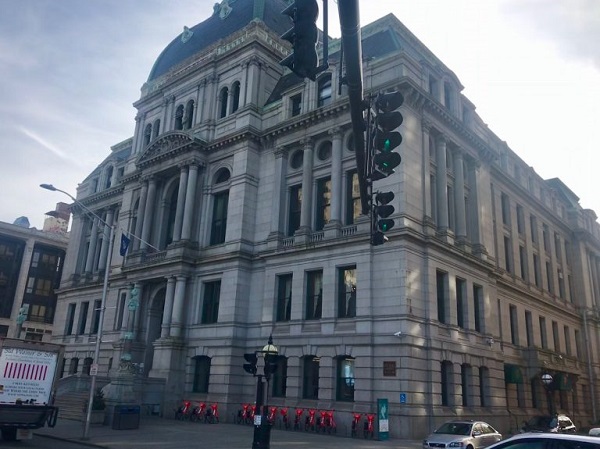
PROVIDENCE – Mayor Jorge O. Elorza’s contested pension obligation bond idea has resurfaced, but at a lower amount and with more protections that could assuage concerns about risky borrowing.
The Providence Pension Fund Working Group on Monday finalized a recommendation calling for the city to borrow up to $515 million to shore up its pension fund, which has been plagued by a $1.3 billion unfunded liability that even escalating annual payments can’t overcome. The recommendation was not formally voted on but generally approved of by all of the 12-member group, according to Michael DiBiase, co-chairman and president of the R.I. Public Expenditure Council.
The recommendation comes after Elorza in 2021 floated a pitch to borrow up to $750 million to address the city’s pension crisis. His idea, which required lawmakers’ approval to bypass state laws that limit the amount of debt municipalities can take on relative to their assessed property value, stalled in the General Assembly amid criticism over what many, including DiBiase, framed as an overly risky venture that could ultimately worsen the city’s financial situation.
The new proposal shaves off about $250 million in borrowing from what Elorza wanted last year for a total of $515 million – including underwriting, insurance and other costs – which would boost the city pension above “critical status” of 60% funded by fiscal year 2029, according to the working group report. The report also examined borrowing $700 or $300 million, but concluded that $500 million was the best middle ground to fund the city’s liability without creating debt that tops the city’s annual revenue.
While still potentially risky given the reliance on sometimes-volatile capital markets, pension obligation bonds have become increasingly popular due to low interest rates, with 64 new bonds totaling $6.3 billion rated by S&P Global in the first nine months of 2021 – versus $3 billion issued in the entire calendar year of 2020, according to the report.
A 4% interest rate would still allow the city to earn 3% benefit based on its 7% rate of return, the report stated.
“If it pans out, it would be worth the risk,” DiBiase said in an interview on Monday.
DiBiase also pointed to additional “guardrails” included in the group’s recommendation, which helped bring him on board, despite his concerns when Elorza pitched the ideas last year.
Among them: that the debt service on the 25-year, fixed-interest rate bond as well as does not exceed the city’s annual revenue, based on a 2% growth rate. Also added are provisions that the city continue to increase its annual contribution – Elorza’s prior idea called for gradually decreasing the city’s annual pension payment – and requiring voter approval.
Similar to Elorza’s previous proposal, the bond would also include a 10-year par call provision for the city to refinance or pay off debt earlier if rates changed.
Perhaps the biggest motivator behind support for this proposal, however, is that there are simply no other good options. The report quickly ruled out bankruptcy as an alternative, nor was inaction a possibility given the looming pension payments slated to swallow the city’s entire budget if nothing changed.

“The city just does not have many options here,” DiBiase said, noting how state court rulings have ruled out renegotiation of payments to retirees, which comprise a bulk of the city’s liability.
The report also emphasizes the need for long-term, structural reform outside of borrowing money such as asking union workers to contribute more to their pensions and medical coverage, and potentially changing certain elements of the pension plan such as increasing retirement age.
The report does not lay out a timeline for when a bond would be issued, but notes that economic conditions, including interest rates, must be favorable. Legislation had not been introduced as of Monday.
DiBiase said that depending upon if and when lawmakers give their blessing, the city may hold a special election rather than wait until November to put the pitch before voters.
Elorza in a statement Monday afternoon said he and his team “look forward to putting these findings into action” but he did not comment on the specific guidelines laid out by the working group nor on a timeline for legislation and an election.
(SUBS last paragraph to add a response from Mayor Jorge O. Elorza’s office.)
Nancy Lavin is a PBN staff writer. You may reach her at Lavin@PBN.com.










